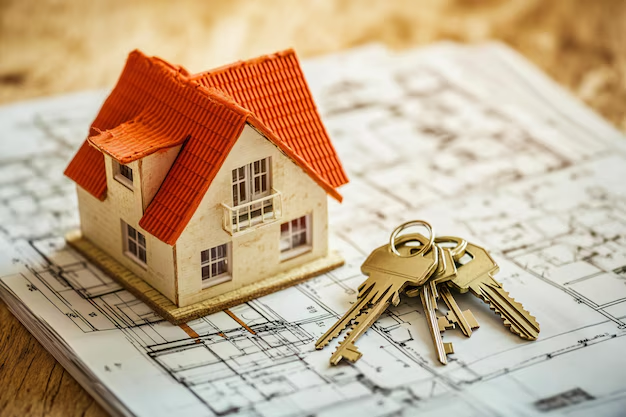Buying your first home is an exciting milestone, but it can also feel overwhelming. From navigating financing options to understanding the buying process, there’s much to learn.
This article answers some of the most commonly asked questions to guide first-time buyers on their journey to homeownership.
1. How Much Can I Afford to Spend on a Home?
Before you start house hunting, determine your budget. A good rule of thumb is to allocate no more than 28% of your gross monthly income to housing costs, including your mortgage, taxes, and insurance. Use online mortgage calculators to estimate monthly payments based on home prices, down payments, and interest rates.
2. Do I Need to Get Pre-Approved for a Mortgage?
Yes! Getting pre-approved for a mortgage not only helps you understand how much you can borrow but also makes you a more attractive buyer. Pre-approval involves a lender evaluating your financial situation and providing a conditional loan amount. Sellers often prioritize buyers who are pre-approved, as it shows you’re serious and financially prepared.
3. How Much Should I Save for a Down Payment?
The down payment amount varies depending on the loan type. While a traditional mortgage typically requires 20%, many first-time buyers qualify for loans with as little as 3-5% down. However, a larger down payment reduces your monthly mortgage and avoids private mortgage insurance (PMI).
Tip: Start saving early and explore programs offering down payment assistance for first-time buyers.
4. What Other Costs Should I Expect?
Beyond the down payment, consider additional costs:
- Closing Costs: Typically 2-5% of the home’s purchase price, covering appraisal fees, title insurance, and lender fees.
- Home Inspection: Essential for identifying potential issues.
- Property Taxes and Insurance: Monthly costs that vary by location.
- Maintenance and Repairs: Budget for ongoing upkeep.
5. Should I Work with a Real Estate Agent?
Absolutely! A real estate agent provides valuable expertise, helping you find homes within your budget, negotiating on your behalf, and guiding you through paperwork. Look for an agent experienced with first-time buyers, as they can answer questions and simplify the process.
6. How Do I Choose the Right Neighborhood?
When buying a home, location matters as much as the property itself. Ask yourself:
- Is the area safe?
- Are there good schools nearby?
- What’s the commute to work or essential amenities like grocery stores?
Visit potential neighborhoods at different times of day to get a feel for the community.
7. What Should I Look for During a Home Tour?
Pay attention to:
- Condition: Check for signs of wear and tear, such as water damage, cracks, or faulty systems.
- Size and Layout: Does the home meet your current and future needs?
- Potential Issues: Are there expensive fixes like a roof replacement or outdated plumbing?
A professional home inspection is critical for identifying hidden problems.
8. What is the Home Inspection Process?
A home inspection is conducted by a professional to assess the property’s condition. It evaluates:
- Structural integrity
- Electrical and plumbing systems
- HVAC (heating and cooling)
- Roof and foundation
If significant issues arise, you can negotiate repairs or reconsider the purchase.
9. How Do I Make an Offer on a Home?
When you find your dream home, your agent will help you submit an offer. This includes the price, contingencies (such as financing approval or home inspection), and proposed closing date. The seller may accept, reject, or counteroffer, so be prepared to negotiate.
10. What Happens During the Closing Process?
Closing is the final step where you sign paperwork to transfer ownership. Before closing:
- Review the final loan details.
- Conduct a final walkthrough of the property.
- Bring required documents and funds for closing costs.
Once complete, the keys are yours!
11. How Can I Avoid Common First-Time Buyer Mistakes?
- Don’t Skip the Home Inspection: It’s your chance to uncover hidden problems.
- Stick to Your Budget: Avoid overspending, even if you’re tempted by a “dream home.”
- Factor in Long-Term Costs: Consider property taxes, HOA fees, and maintenance.
- Don’t Rush: Take time to understand the market and ensure the home meets your needs.
12. Are There Special Programs for First-Time Buyers?
Yes, many government and private programs assist first-time buyers. These include:
- FHA Loans: Require lower down payments and credit scores.
- VA Loans: For veterans and active military, often requiring no down payment.
- State and Local Programs: Offer grants or low-interest loans for first-time buyers.
Key Takeaways
Buying your first home is a big decision, but with preparation and the right guidance, it can be a smooth and rewarding experience. Start by understanding your finances, partnering with professionals, and thoroughly researching homes and neighborhoods. With these steps, you’ll be well on your way to finding the perfect place to call your own.
Are you ready to embark on your home-buying journey? Armed with this knowledge, you can approach the process with confidence and excitement!
Also Read
Reverse Mortgage: All you need to know
From first-time buyers to veterans: Why America’s Freedom Mortgage has something for everyone

